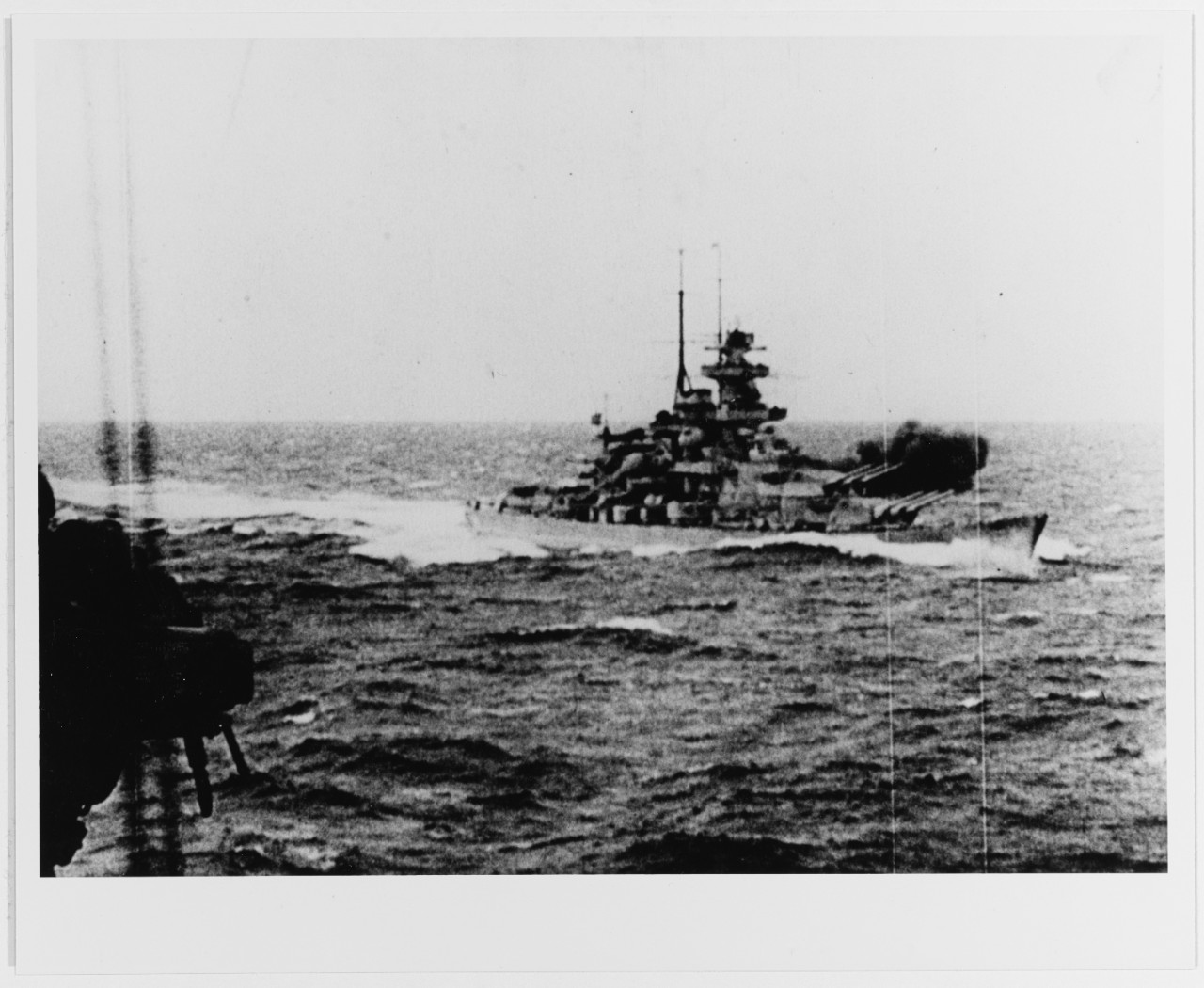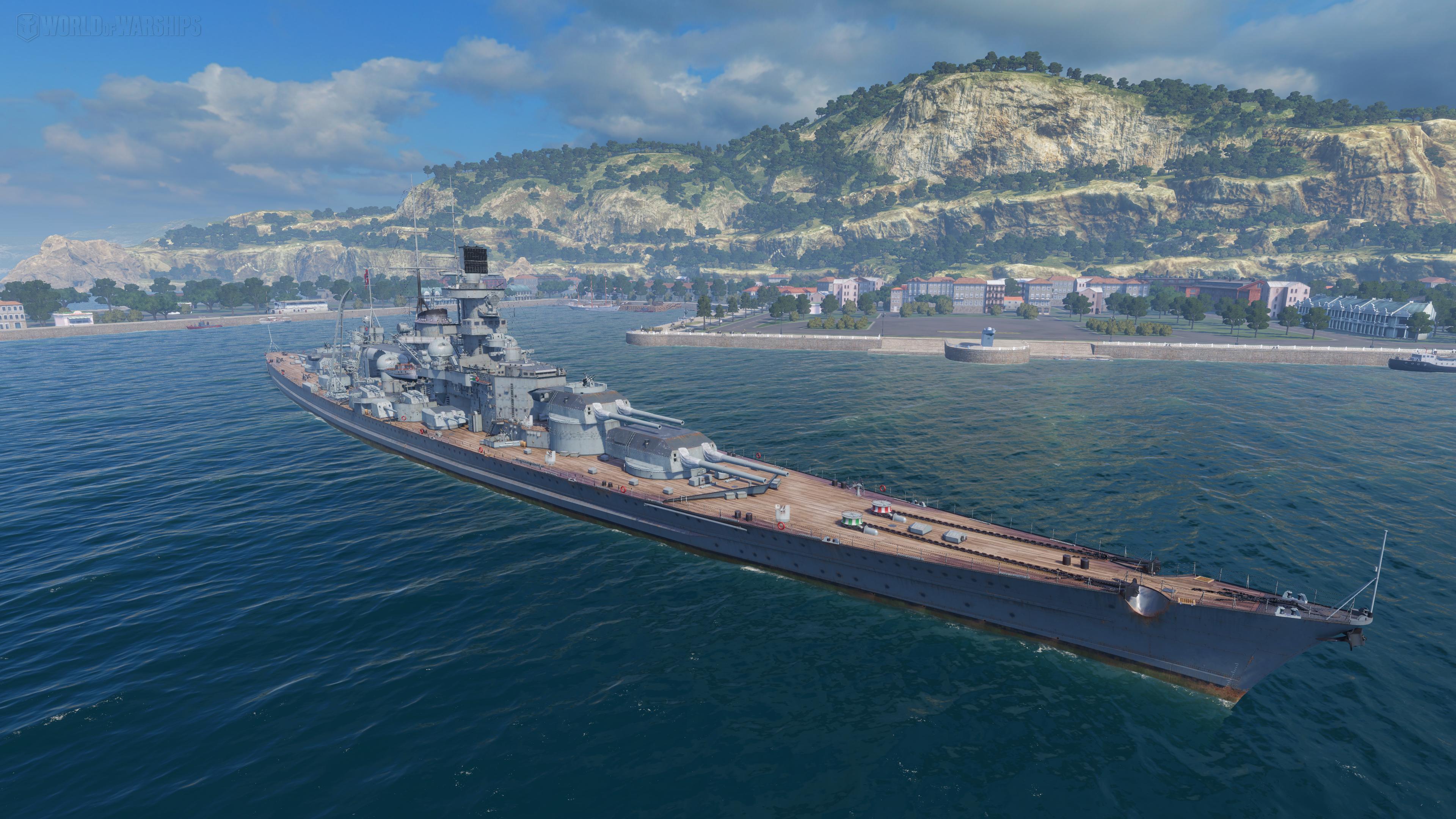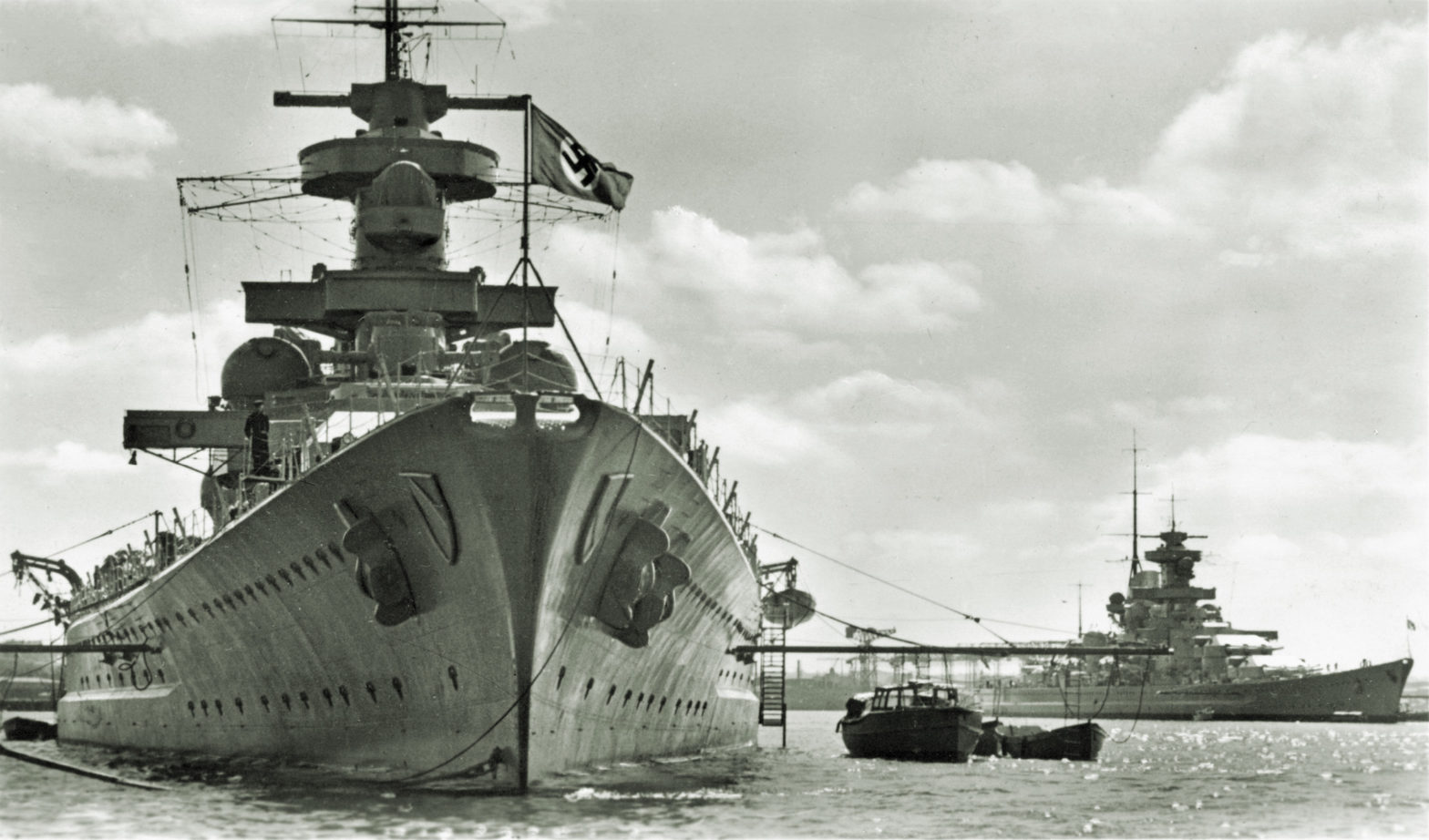
German Battleship/battlecruiser Gneisenau a Scharnhorstclass battleship. Battleship, German
German battleship Gneisenau. The final design was based on that of the Mackensen class (1917) which had been planned at the end of the First World War, and as completed the Scharnhorst class heralded the return of Germany as a respectable sea power - even though small in numbers. They were first-class ships and good all-rounders.

World of Warships Gneisenau Tier 7 German Battleship Overview YouTube
In 1940, off Norway, the Scharnhorst and her sister-ship Gneisenau sank the aircraft carrier HMS Glorious and her escort destroyers Acasta and Ardent. 1,519 men were lost from the three ships.

NH 82409 GNEISENAU (German battleship, 1936)
In this gripping historical narrative, we delve into the dramatic journey of the German battleship Gneisenau. From her daring sorties in the North Atlantic t.

German battlecruiser Gneisenau World War Photos
SMS Gneisenau was an armored cruiser of the German Kaiserliche Marine (Imperial Navy), part of the two-ship Scharnhorst class.Named for the earlier screw corvette of the same name, the ship was laid down in June 1904 at the AG Weser shipyard in Bremen, launched in June 1906, and commissioned in March 1908. She was armed with a main battery of eight 21 cm (8.3 in) guns, a significant increase.

Gneisenau — German Tier VII battleship. German Battleships World of Warships official forum
The German battleships Scharnhorst and Gneisenau were the Third Reich's attempt at building powerful vessels that could rival those of France and the United.

Battleship Gneisenau, Aavo Teder Battleship, Warship model, New battleship
Gneisenau was a World War II Scharnhorst class capital ship, referred to as either a light battleship or battlecruiser of the German Kriegsmarine. This 31,10.

11 in German battleship Gneisenau, photographed in early 1941 during Operation Berlin, her
The Scharnhorst class was a class of German battleships (or battlecruisers) built immediately prior to World War II.The first capital ships of Nazi Germany's Kriegsmarine, it comprised two vessels: Scharnhorst and Gneisenau. Scharnhorst was launched first, and is considered to be the lead ship by some sources; they are also referred to as the Gneisenau class in some other sources, as Gneisenau.

German Battleship/Battlecruiser Gneisenau, derelict at Gotenhafen Battleship, Naval history
Battleship D, later called Scharnhorst , was laid down in May 1935 at the Kriegsmarine Shipyard in Wilhelmshaven and commissioned in January 1939. The sister ship Gneisenau (Battleship E) was laid down in March 1935 at the Deutsche Werke in Kiel and commissioned in May 1938. It soon got obvious that the straight bow of the ships had to be.

German battleship Gneisenau World War Photos
German battleship Gneisenau completed its torpedo damage repairs and departed Trondheim, Norway for Kiel, Germany for more thorough repairs. She was escorted by cruiser Nürnberg and destroyers Galster, Lody, Jacobi, and Ihn; torpedo boats Luchs, Jaguar, Kondor, Iltis, and T.5 would join the convoy overnight near Stavanger, Norway. 22 Jan 1941

German Battleship Gneisenau Destination's Journey in 2021 Battleship, Heavy cruiser, Navy ships
Gneisenau was a World War II Scharnhorst class capital ship, classified as either a light battleship or battlecruiser. This 38,900 t ship was the third named after the Prussian general August von Gneisenau, after the three masted iron hulled frigate SMS Gneisenau, launched in 1879 and wrecked in 1900 the World War I armoured cruiser SMS Gneisenau which was ruined in the battle of the Falkland.

German battleship Gneisenau about to refuel from tanker Westerwald[1280 x 911] r/WarshipPorn
The battleships Gneisenau and Scharnhorst, the heavy cruiser Admiral Hipper, and eight destroyers make a brief sortie into the North Sea. The group returns safely to Wilhelmshaven.. Thereafter, the Ardent launches eight torpedoes but obtains no hits and is sunk by the combined fire of both German battleships at 1725. The Glorious comes again.

German battleship Gneisenau Alchetron, the free social encyclopedia
Scharnhorst and Gneisenau sink 16 merchants east of Newfoundland. Gneisenau is sighted by the British BB Rodney which requests identification of the German ship. Gneisenau replies "H.M.S. Emerald" and escapes. 22.03.1941: Both ships enter Brest. They sunk a total of 22 ships with 115600t, Gneisenau 14 with 66300 t. 06.04.1941:

German battleship Gneisenau Alchetron, the free social encyclopedia
Here she and the Gneisenau were frequently bombed until the second week of February, 1942, when, late on the evening of the 11th, the final attack was made. In all, 3,299 bombing sorties had been flown against the German battleships and some 4,000 tons of bombs dropped. Forty-three bombers and 247 R.A.F. personnel had been lost.
Vintage photographs of battleships, battlecruisers and cruisers. German battlecruiser Gneisenau.
Operation Berlin was a raid conducted by the two German Scharnhorst-class battleships against Allied shipping in the North Atlantic between 22 January and 22 March 1941. It formed part of the Battle of the Atlantic during World War II.The Scharnhorst and Gneisenau sailed from Germany, operated across the North Atlantic, sank or captured 22 Allied merchant vessels, and finished their mission by.

Gneisenau Photos Battleship, Heavy cruiser, Navy ships
Gneisenau (German pronunciation: [ˈɡnaɪ̯zənaʊ̯]) was a German capital ship, alternatively described as a battleship and battlecruiser, of Nazi Germany's Kriegsmarine.She was the second vessel of her class, which included her sister ship, Scharnhorst.The ship was built at the Deutsche Werke dockyard in Kiel; she was laid down on 6 May 1935 and launched on 8 December 1936.

scharnhorstgneisenaugermanships
The Gneisenau was a German battleship that served as a key instrument in World War II naval operations, undertaking notable missions like Operation Berlin and Operation Cerberus. Commissioned in 1938, she was a symbol of the re-emergence of German naval power. Despite her eventual decommissioning and scuttling, her strategic and tactical impact.